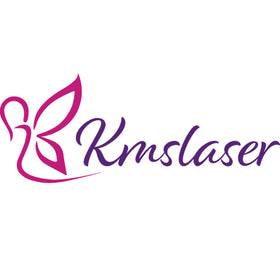Shockwave therapy is a powerful tool for treating chronic musculoskeletal conditions. Its non-invasive, practical and cost-effective approach allows patients to quickly regain functionality and movement, making it an excellent choice for brand owners, distributors, beauty salons, salonowners and spaowners alike. But there are times when this modality may not be suitable - so as professionals we must understand what those occasions may be in order to ensure patient safety. In this blog post we will explore the key situations in which shockwave therapy should not normally be used: understanding these instances will help clinicians among you protect your clients with confidence.
Overview of Shockwave Therapy and What it Treats
Shockwave therapy, also known as Extracorporeal Shockwave Therapy (ESWT), is a cutting-edge medical treatment that employs high-energy sound waves to stimulate healing of many musculoskeletal conditions. Unlike traditional forms of treatment that rely solely on medication or surgery, shockwave therapy is non-invasive and promotes the body's natural ability to regenerate and repair tissues. The treatment has been proven to effectively treat conditions such as plantar fasciitis, tendonitis, and even erectile dysfunction. It works by increasing blood flow to the affected area, breaking down calcium deposits , and triggering the release of growth factors . As a result , patients experience pain relief and accelerated healing times. With its many uses and benefits, it's no wonder that shockwave therapy is gaining popularity among healthcare professionals and patients alike.
Contraindications of Shockwave Therapy
Shockwave therapy has become increasingly popular for treating various musculoskeletal conditions and injuries. However, it is important to note that not everyone is an ideal candidate for this type of therapy . There are certain contraindications of shockwave therapy that must be taken into consideration before undergoing treatment. These include issues such as pregnancy, bleeding disorders,nerve or vascular damage,and acute infections.It is crucial for patients to discuss their medical history and any current health concerns with their healthcare provider before deciding if shockwave therapy is the right option for them.By doing so,they can ensure the safety and effectiveness of their treatment plan.
Conditions That Warrants Cautious Use of Shockwave Therapy
Shockwave therapy is a non-invasive treatment option that has gained popularity in recent years. However, caution must be exercised when using this treatment option for certain conditions. People with bleeding disorders, pregnant women, cancer patients, and those with pacemakers are some of the individuals who should take extra care when considering shockwave therapy. Even for those without these conditions, the therapy can cause discomfort. So, it's essential to consult with a medical professional before undergoing shockwave therapy to ensure you avoid any potential risks.It's always better to err on the side of caution when it comes to your health.
Side Effects and Potential Complications from Shockwave Therapy
While shockwave therapy is a non-invasive and effective treatment option for certain conditions, it is important to be aware of the potential side effects and complications that may arise. These can include bruising , swelling , temporary numbness, and discomfort during the procedure . In rare cases , patients may experience more serious complications such as skin breakdown , infection , or nerve damage. However, these occurrences are extremely rare and can often be prevented with proper patient screening and adherence to recommended treatment protocols. It is important to discuss any concerns or questions about shockwave therapy with your healthcare provider to ensure the safest and most effective treatment possible.
How to Identify if Shockwave Therapy is Right for You
If you're experiencing long - standing pain in muscles , tendons , or bones , shockwave therapy might be the solution you're looking for. This non-invasive treatment uses sound waves to help reduce chronic pain and promote healing. While shockwave therapy has been proven effective for many conditions, it's not the best choice for everyone. To determine if it's right for you, consult with a medical professional who has experience with this technique.They'll assess your condition and recommend the best course of treatment , which may include shockwave therapy or other options. Don't suffer in silence. There are many treatment options available to help you get back to living your life pain-free.
Alternatives to Shockwave Therapy for Pain Relief and Mobility Issues
For individuals who suffer from chronic pain or mobility issues, seeking out treatment options can be a daunting task. While shockwave therapy has been a popular option for many, there are alternatives available that may be just as effective. One such alternative is physical therapy, which can help improve mobility and reduce pain through targeted exercises and stretches. Acupuncture and massage therapy are also viable options for pain relief, as they both work to promote the body's natural healing process. Additionally, medications such as anti-inflammatory drugs can help reduce pain and swelling.With so many options available, it's important to consult with a medical professional to determine which alternative best suits your needs.
In conclusion, shockwave therapy has proven to be an effective and innovative treatment for many chronic injuries, pain syndromes, and musculoskeletal issues. However, it is essential to conduct further research on the safety of the procedure before deciding if shockwave therapy is right for you . Before undergoing shockwave therapy , patients should always discuss potential risks with their health care provider as well as discuss any contraindications or conditions warranting caution. Since there are some side effects associated with this type of therapy, alternatives such as physical therapy or manual manipulation may be a better option for those who cannot tolerate the side effects of shockwave therapy. An accurate diagnosis is also vital, since wrong diagnoses can often lead to other complications like incorrect therapies and prolonged suffering from chronic pain. After conducting due diligence in researching how shockwave therapy works and its associated risks and benefits, you will be able to make an informed decision that best suits your specific needs.

